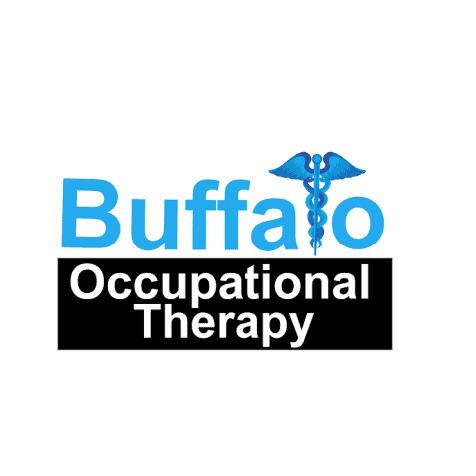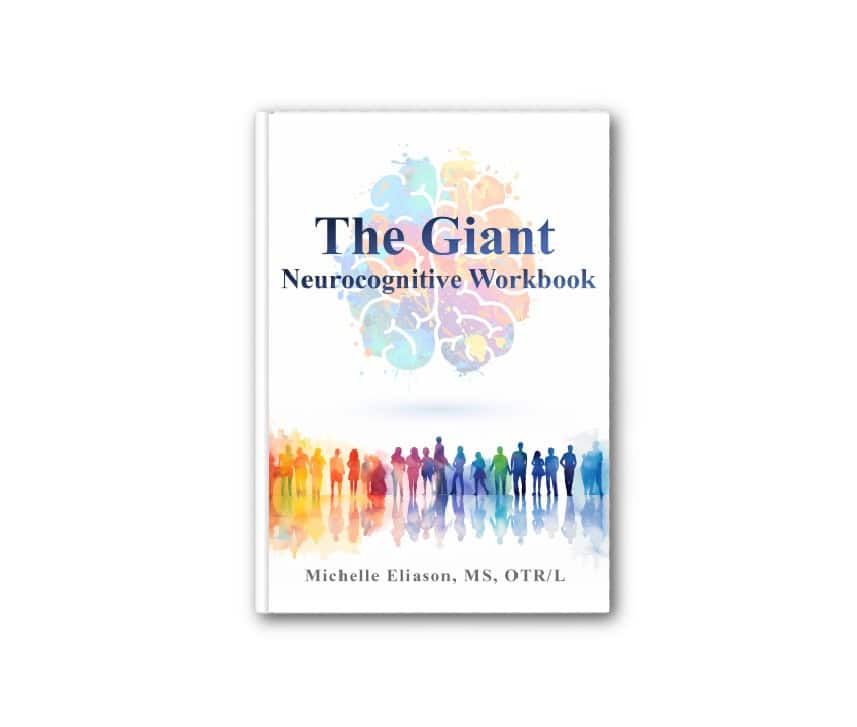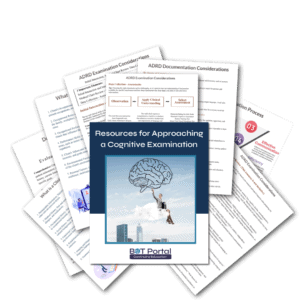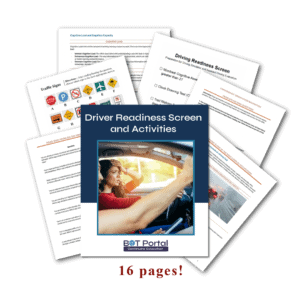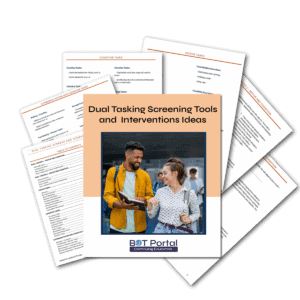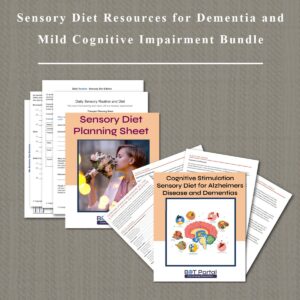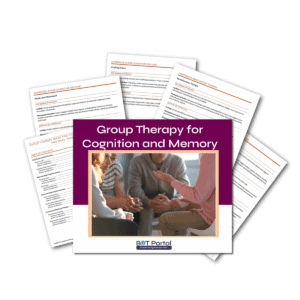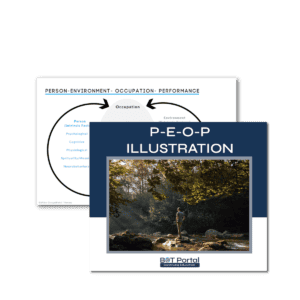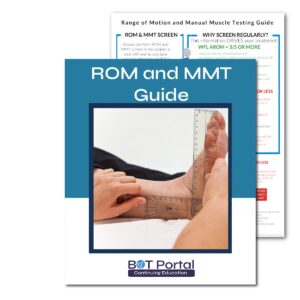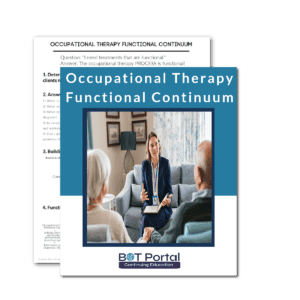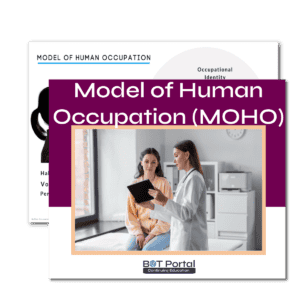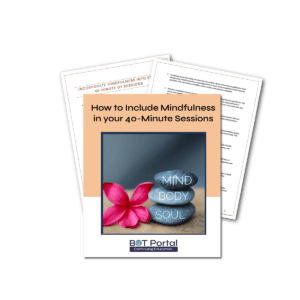Cognitive Strengthening Needed
Disclaimer: This quiz is not a substitute for medical advice, diagnosis, or treatment. It is a simple tool to help you become more aware of your symptoms and guide your next steps. Buffalo Occupational Therapy recommends that you talk with your primary care physician or another medical professional about any memory difficulties, changes in memory, or other changes in your daily function.
What do your results mean?
Your score of 21-30 out of 40 points suggests that you may be experiencing some cognitive changes that could be indicative of cognitive fatigue from an busy, stressful lifestyle, Mild Cognitive Impairment (MCI) or early-stage cognitive decline. However, these changes might also be related to typical age-related memory adjustments. It’s important to understand both the strengths and areas that may need further attention based on your results.
Strengths:
-
Memory Recall: Your performance in recalling information after a delay, even with interference, indicates that your working memory is still functioning at a relatively strong level. This means that your ability to hold and manipulate information over short periods remains a strength, although it may require some effort in more complex or distracting situations.
-
Cognitive Flexibility: Your ability to adapt to new information and switch between tasks shows that you still possess a good degree of cognitive flexibility. This skill is crucial for handling daily challenges and adjusting to new situations, suggesting that your brain’s executive functions are still effective.
-
Attention to Detail: Your results suggest that you can still maintain focus and pay attention to important details, even when there are distractions present. This ability is vital for decision-making and problem-solving in everyday life.
Potential Areas to Address:
-
Delayed Recall and Working Memory with Interference: While your working memory shows some strength, there may be challenges in recalling specific details after being distracted or when a delay is involved. This could indicate that your brain is experiencing some difficulty in retaining and retrieving information over time, which may need to be monitored.
-
Sequencing and Organizational Skills: If you had difficulty with tasks that required you to arrange steps in the correct order, this could be a sign of early changes in your brain’s ability to plan and organize information. These executive functions are essential for managing complex tasks, and slight declines here could suggest the need for closer observation.
-
Visual Memory and Error Detection: Your ability to remember visual details and detect errors may show some early signs of decline. This could affect how you navigate familiar spaces, recognize faces, or recall visual information from memory. It’s important to be aware of these changes, as they can impact daily activities.
-
Mathematical Reasoning and Numerical Processing: If you found tasks involving number manipulation or recognizing patterns in sequences more challenging, this might suggest early difficulties in your brain’s numerical reasoning abilities. These changes can affect tasks such as budgeting, managing finances, or even following time-based schedules.
What functions did this memory quiz screen?
Question 1:
- Working Memory: Holding and manipulating information over short periods.
- Attention and Focus: Focusing on specific details after being distracted.
- Recall and Delayed Recall: Remembering information after a delay and interference.
Question 2:
- Sequencing: Placing steps in the correct order.
- Planning and Organization: Mentally organizing steps of an activity.
- Working Memory: Holding information while arranging steps.
- Attention to Detail: Ensuring no step is overlooked.
Question 3:
- Delayed Recall: Remembering information after a delay.
- Working Memory: Holding onto information despite distractions.
- Attention and Focus: Focusing on specific details despite interruptions.
- Interference Management: Ignoring irrelevant information and focusing on the important detail.
Question 4:
- Cognitive Flexibility: Adapting to new ideas while recalling previous information.
- Attention to Detail: Distinguishing between subtle differences.
- Memory Recall with Interference: Recalling previous information after a brief distraction.
Question 5:
- Visual Memory: Remembering visual details after a delay.
- Alternating Attention: Shifting focus between different types of tasks.
- Delayed Recall: Recalling information after an interruption.
- Error Detection: Identifying incorrect or missing items.
Question 6:
- Sequencing: Arranging numbers in the correct order.
- Numerical Reasoning: Applying basic arithmetic to order numbers.
- Attention to Detail: Carefully considering the correct numerical order.
Question 7:
- Pattern Recognition: Identifying and understanding patterns.
- Sequencing: Following and extending a sequence.
- Mathematical Reasoning: Applying basic arithmetic to continue a sequence.
Question 8:
- Visuospatial Skills: Interpreting visual information to determine the time.
- Time Perception: Understanding the relationship between the hour and minute hands.
- Attention to Detail: Carefully analyzing the clock hands’ positions.
- Working Memory: Holding the clock hands’ positions while determining the time.
Question 9:
- Cognitive Flexibility: Adjusting thinking to reverse the order of a sequence.
- Working Memory: Holding and manipulating the sequence of numbers.
- Attention to Detail: Ensuring the correct reversal of the sequence.
- Sequencing: Rearranging the sequence correctly.
Question 10:
- Numerical Reasoning: Performing basic arithmetic to determine change.
- Attention to Detail: Carefully subtracting and accounting for decimal points.
- Working Memory: Holding numbers in mind while performing subtraction.
Question 11:
- Planning and Prioritization: Identifying the most important task to complete first.
- Decision-Making: Deciding the order of tasks.
- Problem-Solving: Determining the best course of action.
Question 12:
- Task Management and Prioritization: Managing multiple tasks and prioritizing.
- Cognitive Flexibility: Shifting between tasks and returning to the original task.
- Risk Assessment and Decision-Making: Assessing risks and making safe decisions.
- Attention and Focus: Maintaining focus on critical tasks despite distractions.
Question 13:
- Language Processing: Finding and using the correct word in a conversation.
- Verbal Fluency: Maintaining conversation flow despite word retrieval difficulties.
- Cognitive Flexibility: Adapting to a situation where the correct word is not recalled.
- Error Recognition and Compensation: Recognizing and compensating for errors in speech.
Question 14:
- Self-Awareness and Insight: Assessing awareness of cognitive health and memory concerns.
- Emotional Impact: Evaluating the emotional response to memory concerns.
- Risk for Cognitive Decline: Identifying potential cognitive decline through self-reported worry.
Question 15:
- External Observations: Assessing awareness of cognitive changes observed by others.
- Self-Awareness and Insight: Understanding awareness of external feedback on cognitive health.
- Early Detection: Identifying early signs of cognitive impairment through external feedback.
Question 16:
- Emotional and Behavioral Monitoring: Identifying changes in mood or personality.
- Self-Insight: Assessing the ability to recognize and report mood or personality changes.
- Impact on Daily Life: Understanding how mood or personality changes affect daily functioning.
Knowledge is Power: Understanding Brain Reserve, Cognitive Reserve, and Resilience
Your brain is an incredibly powerful organ, capable of adapting and changing throughout your life. To understand how to protect and strengthen your cognitive health, it’s essential to know about three key concepts: Brain Reserve, Cognitive Reserve, and Resilience.
Brain Reserve
Brain Reserve
Brain Reserve refers to the structural health of your brain—the physical condition of your brain tissue, including the number of neurons, the strength of connections between them, and overall brain volume. A healthy brain reserve provides a strong foundation for cognitive functions like memory, attention, and problem-solving.
Cognitive Reserve
Cognitive Reserve
Cognitive Reserve is the brain’s ability to use its networks more efficiently or to recruit alternative networks when needed. It’s influenced by factors such as your education level, problem-solving experiences, occupation, and lifelong learning. A strong cognitive reserve can help your brain function well even when there are physical changes or damage.
Resilience
Resilience
Resilience is the brain’s ability to function at high levels, particularly on tasks that involve memory and attention, even if there are underlying non-age-related brain changes. It’s impacted by both your brain reserve and cognitive reserve. If your brain has developed strong resilience, it may have an easier time adapting to memory disorder or disease.
What Does This Mean for You?
If you’re experiencing Mild Cognitive Impairment (MCI) or finding daily tasks that require multitasking or problem-solving more challenging, it’s important to take these signs seriously. Here’s why:
Record Your Baseline: By discussing these changes with a professional, you can establish a baseline of your cognitive function. This is crucial if you continue to see changes, as it allows your healthcare team to track your progress and provide the best possible care.
Modify Your Lifestyle: A cognitive specialist can help you identify ways to adjust your lifestyle to better support your brain health. This might include changes to your diet, exercise routine, sleep habits, or stress management techniques, all of which can enhance your cognitive reserve and resilience.
Engage in Structured Activities: Professionals can offer you structured and regimented activities that are designed to strengthen your cognitive functions over time. These activities can be tailored to your specific needs, helping you improve your ability to handle daily tasks and challenges.
Receive Education and Support: Understanding more about how your brain works and what you can do to protect it can alleviate your concerns and help you feel more in control of your health. Education on cognition empowers you to make informed decisions and stay proactive in maintaining your well-being.
Warning Signs

Frequent Memory Lapses
Example: Misplacing your keys once in a while is normal, especially if you’ve always had a habit of putting them in random places. However, if you suddenly start losing them more often than before, and can’t recall where you left them even after retracing your steps, this could be a warning sign.

Difficulty Following Conversations:
Example: It’s normal to occasionally lose track of a conversation, especially in a noisy environment. But if you find yourself frequently unable to follow what others are saying, forgetting what was discussed just moments ago, or needing others to repeat themselves more often, this may be a cause for concern.

Struggling with Familiar Tasks:
Example: Everyone might occasionally forget the steps to a recipe they don’t make often. But if you start having trouble with tasks you’ve done regularly for years—like paying bills, using a familiar app on your phone, or cooking a favorite dish—this might be a sign of something more serious.

Getting Lost in Familiar Places:
Example: It’s common to take a wrong turn in an unfamiliar area. However, if you find yourself getting lost or disoriented in places you know well, like your neighborhood or a frequently visited store, it’s important to pay attention to this change.
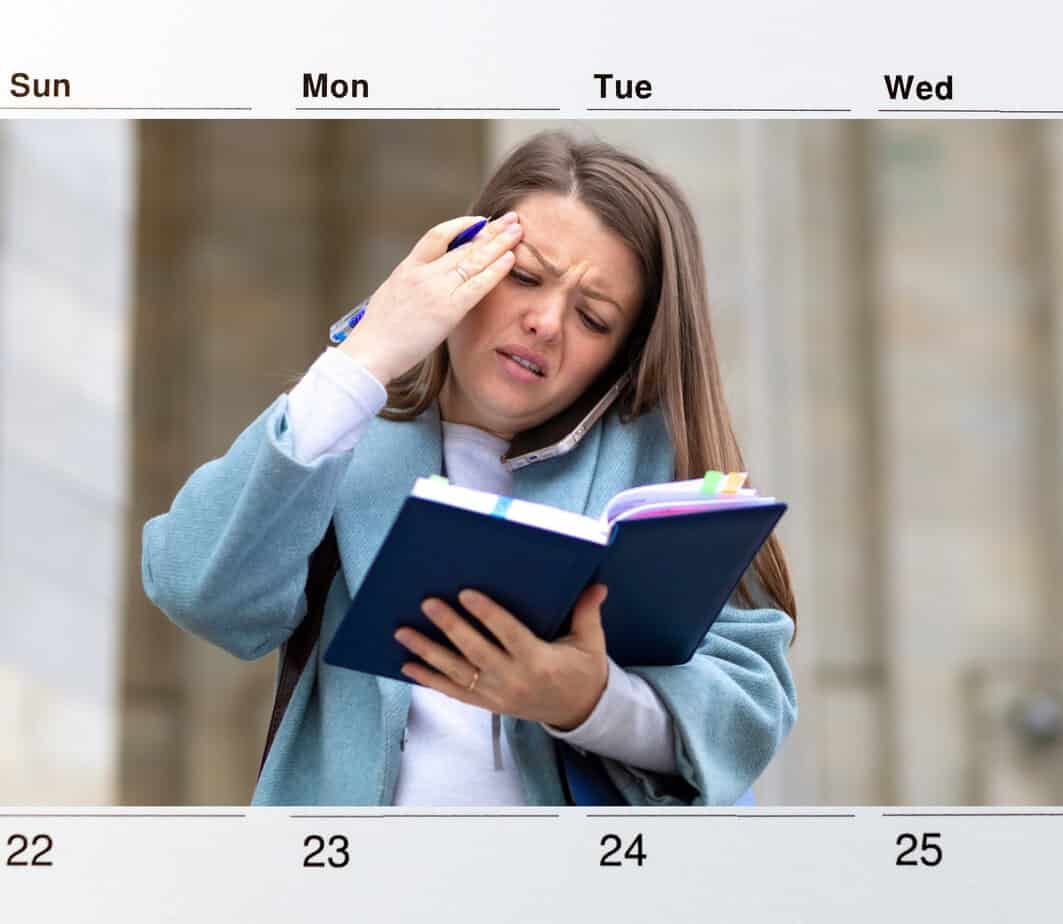
Forgetting Important Dates or Appointments
Example: It’s normal to occasionally forget a doctor’s appointment or a friend’s birthday if it’s not marked on your calendar. But if you begin to forget important dates or appointments more often, even when they’ve been a regular part of your schedule, this might be an early warning sign.

Difficulty Focusing on Tasks:
Example: It’s natural to get distracted from time to time, especially when multitasking. However, if you’re finding it increasingly hard to focus on one task at a time, or if you’re constantly jumping from one thing to another without finishing, this could be a sign of attention changes.

Repeatedly Asking the Same Questions:
Example: It’s normal to ask the same question twice if you’re preoccupied. But if you start asking the same questions repeatedly because you don’t remember asking them the first time, this could indicate a memory issue.

Misplacing Objects in Unusual Places:
Example: We all occasionally misplace things like our wallet or phone. However, if you start finding them in strange places—like the refrigerator or a cupboard—without remembering how they got there, it’s time to take note.

Increased Difficulty Making Decisions:
Example: It’s normal to be indecisive about big choices, like buying a car. But if you’re having trouble making everyday decisions, such as what to eat for dinner or which clothes to wear, this could be an early sign of cognitive change.

Trouble Remembering Names of Close Friends or Family:
Example: Forgetting the name of someone you just met is common, but if you start struggling to remember the names of people you’ve known well for years, it’s a sign to pay attention to.
Next Steps
Your quiz results suggest that you may be experiencing some mild challenges with memory and attention. While these changes could be part of the normal aging process, it’s important to take them seriously and consider what steps you can take to support your cognitive health. One of the best things you can do is keep track of how you’re feeling and how your brain is working over time. This might include writing down your thoughts, any changes you notice, and how well you’re handling daily tasks.
But just as important, you should consider making an appointment with a memory specialist. A specialist can do a comprehensive evaluation and give you an official document that shows how your brain is working right now. This is important because it creates a clear record of your previous level of functioning (PLOF). If you ever notice changes in the future, having this baseline will help your healthcare team understand what’s different and how to best help you.
By taking these steps now—both self-recording your experiences and getting an official evaluation—you’re helping to protect your future care and making sure you’ll get the right support if you ever need it.
+ Search for a Cognitive Specialist to conduct a formal evaluation. An Occupational Therapist, Speech Therapist, or Neuropsychologist may be able to conduct this.
+ Start keeping a daily journal. Write down any changes you notice in your memory, focus, or daily tasks. This will help you track patterns over time and provide valuable information during your evaluation.
+ Share your concerns with a trusted friend or family member. Let them know what you’re experiencing so they can support you and help monitor any changes.
+ Stay engaged in mentally stimulating activities. Puzzles, reading, and learning new skills can help keep your mind active and sharp.
+ Organize your environment. Create routines and designate specific places for important items like keys, phone, and wallet to reduce the chances of misplacing them.
+ Maintain a healthy lifestyle. Regular exercise, a balanced diet, and good sleep habits are important for brain health.
+ Set reminders for important tasks. Use a calendar, planner, or smartphone to keep track of appointments and to-do lists to ensure you stay on top of your responsibilities.
+ Review your medications with your doctor. Some medications can affect memory and concentration, so it’s important to check if any of yours could be contributing to the changes you’re noticing.
+ Plan regular follow-ups with your healthcare provider. Schedule check-ins to monitor any changes and adjust your care plan as needed.
+ Focus on what you can control. Take one step at a time, and remember that seeking help and staying informed puts you in charge of your cognitive health.

Michelle Eliason MS, OTR/L
Michelle is an Occupational Therapist in Buffalo, NY, with extensive experience in neurological and neuromuscular rehabilitation. She is currently pursuing a Ph.D. in Rehabilitation Science at the University at Buffalo’s Brain Function and Recovery Lab, where she studies how brain injuries lead to memory and attention problems. Under the guidance of Dr. Ghazala Saleem, Michelle is exploring how Non-Invasive Brain Stimulation might help in the recovery or maintenance of brain function.
Since 2016, Michelle has specialized in working with cognitive and dual-tasking (cognitive-motor) impairments, particularly in individuals with Alzheimer’s Disease, Brain Injuries, and other neurodegenerative conditions.
Protect your Cognitive Health and Secure Your Memory Provider Today
Consider booking a 90-minute Cognitive Consultation with one of our skilled Occupational Therapists, specialized in memory and cognition. During this session, we’ll help you establish a comprehensive cognitive profile that can serve as a valuable reference for the future. This is your opportunity to ensure that your cognitive strengths are maintained and to create a baseline that can guide your care if any changes arise down the road.
Invest in your cognitive future today for $250 and take the next step in safeguarding your mental sharpness and well-being.
Appointments are limited, so schedule yours now to secure your spot and protect your cognitive health.
Looking for a Self-Paced Option?
You may not be ready to commit to a formal consultation right now, and that’s completely okay. If you’re looking for a way to actively support your cognitive health at your own pace, I’d like to recommend The Giant Neurocognitive Workbook by Michelle Eliason, a Cognitive Scientist.
This workbook is a powerful resource that you can use on your own or alongside traditional cognitive remedial therapy. It’s packed with over 300 puzzles and activities that target essential cognitive functions, such as memory, executive function, visual perception, and more. Each section is thoughtfully designed to engage specific areas of the brain, helping you maintain or even improve your cognitive skills.
Whether you’re experiencing mild changes or just want to stay sharp, this workbook allows you to take control of your cognitive health on your terms. You can work through the activities at your own pace, track your progress, and identify any areas that might need more attention—all in the comfort of your home.
Consider The Giant Neurocognitive Workbook as a valuable tool in your cognitive journey. It’s an excellent step toward supporting your brain’s health and could provide the structure and challenge you’re looking for right now.
